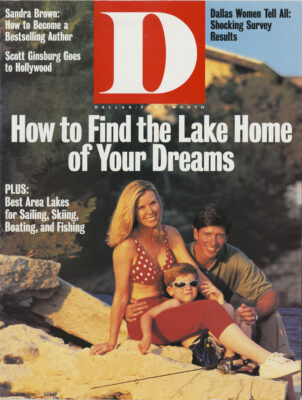THE FIRST TIME I MET BILL BUCKLEY WAS AT a small reception 20 minutes before we entered the Fairmont banquet room together to sit at the head table. He was a major celebrity, and 1 was a 26-year-old city magazine publisher. He was there to give the keynote speech, and I was there to introduce him. In our short encounter I learned one of the most important lessons of my life. Bill had on a regular buttoned-down shirt with his tuxedo, and I summoned up the nerve to I ask him about it. I expected an arched eyebrow, but instead received some confidential advice. “When you go to as many black tie events as I do,” he said, “all the studs and cufflinks make you dread the thought. But a regular shirt makes changing into a tuxedo the same as changing into another suit. It will improve your attitude.” I copied him for the next 25 years.
When Bill’s latest book. Let Us Talk Of Many Things: The Collected Speeches, arrived from his office in New York, 1 immediately recalled that evening. How many speeches has Buckley given, how many times has he been introduced, how many times has he donned that tuxedo? As my little story shows, no matter how many times, he always acted with consummate grace and courtesy.
Later I would play publisher to Bill’s editor-in-chief at National Review, which is like someone trying to play conductor to Van Cliburn on the piano: He was either following me or I was following him, and he was so good I never discovered which. As superfluous as a conductor may be in such a circumstance, he at least gets to know the performer, and I got to know Buckley well. The regard he shows for strangers is only a hint of the zeal he applies to his friendships, and some of that is shown in the testimonials included in this volume, touching in their sentiment and powerful in their evocation of a lifetime shared in the trenches of a great cause.
This book takes us into the trenches at a time when the cause seemed likely to be lost. As with Winston Churchill’s memoirs of the Second World War, these speeches thrust us back into the heart of a titanic struggle. David Brooks, in his foreword, calls this a primary document in the history of the Cold War, and it is. But this is not the Cold War as history; it is war as it is being fought. and the speeches from that time bristle with energy and purpose and the glint of Buckley’s weapons. His is the kind of rapier wit where the rapier inflicts real wounds.
Here’s a sample from a 1959 debate at Hunter College with a well-known liberal editor of the time: ’1 cannot think of a single word James Wechsler, a spokesman for American liberalism and a product of it, has ever uttered, or a deed he has ever done, that could be proved to have given comfort to slaves behind the Iron Curtain, whose future as slaves would be as certain in a world governed by James Wechsler as the future of slaves in Atlanta would have been in an America governed by Jefferson Davis.” This is not fencing as a genteel sport; this is swordplay meant to decapitate, made all the more deadly because it was true. Let Us Talk… is full of such moments.
There’s a paradox here. Of all the speakers I have heard, Buckley is not the best. He refers to speeches as “lectures,” and having heard a few. 1 know why. But reduced to paper, his words come alive. His fame may have come from television, but his art is on the printed page. As a writer, editor, and debater, he is incomparable. As a combatant, he was indispensable, and this book shows why.
judy walgren
Judy Walgren began taking photographs as an excuse to shut the organic chemistry look and high tail it to the beach while studying pre-med at Pepperdine University. After graduating from IT Austin with a degree in journalism, she took a job with the Dallas Morning News in 1987, where she and a team of journalists received the 1994 Pulitzer Prize for International Reporting. She has since quit the News and freelances for publications such as Texas Monthly and the New York Times. This month her work appears in “What Women Want”
Get our weekly recap
Brings new meaning to the phrase Sunday Funday. No spam, ever.
Related Articles

Local News
Habitat For Humanity’s New CEO Is a Big Reason Why the Bond Included Housing Dollars
Ashley Brundage is leaving her longtime post at United Way to try and build more houses in more places. Let's hear how she's thinking about her new job.
By Matt Goodman

Sports News
Greg Bibb Pulls Back the Curtain on Dallas Wings Relocation From Arlington to Dallas
The Wings are set to receive $19 million in incentives over the next 15 years; additionally, Bibb expects the team to earn at least $1.5 million in additional ticket revenue per season thanks to the relocation.
By Ben Swanger

Arts & Entertainment
Finding The Church: New Documentary Dives Into the Longstanding Lizard Lounge Goth Night
The Church is more than a weekly event, it is a gathering place that attracts attendees from across the globe. A new documentary, premiering this week at DIFF, makes its case.
By Danny Gallagher


